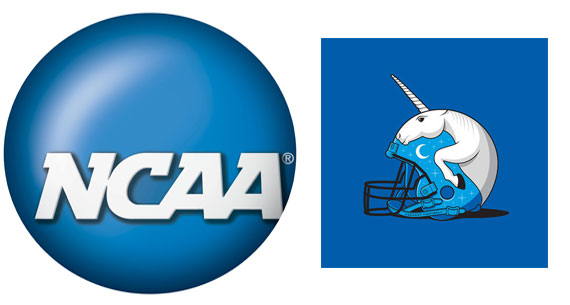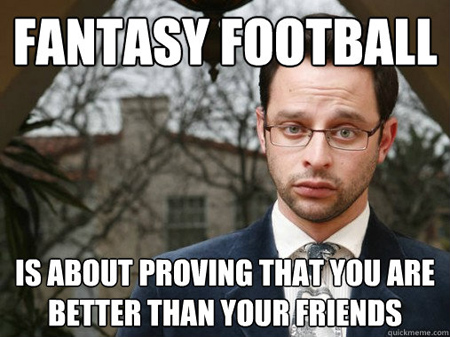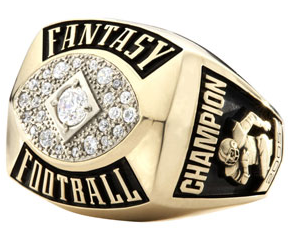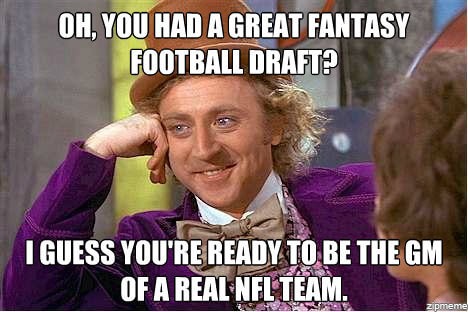It’s Like Gambling: NCAA Rules Against Fantasy Football

NCAA rules against fantasy football threatens participating athletes with a year of suspension.According to Oliver Luck, the executive of the college sports organization and father of Indianapolis Colts quarterback Andrew Luck, entry-fee daily fantasy sports qualify as sports gambling, which is prohibited for NCAA players. This means that athletes playing fantasy games for money violate the organization’s gambling laws. They will automatically lose one year of their eligibility if caught playing DraftKings or FanDuel.

Like the NFL and unlike the NBA and the MLB, NCAA strongly opposes sports gambling. But the amateur sports organization went one step further recently. They declared that entry-fee daily fantasy sports are also a form of sports gambling.
Though the major leagues all embraced these games – or just did not act to prevent them growing – NCAA has a firm stance against the matter. They argue that it is a threat towards the integrity of the game and amateur players are far more vulnerable like their pro colleagues.
Since there is big money in this business, it is obvious that at some point it will worth it for someone to try to influence the result of college sports scores to make some cash. The majority of the NCAA athletes have no shot at professional careers at all. So, why not try to earn some extra income towards the end of their college careers?
Huffingtonpost.com: Why The NCAA Is So Uneasy About The Rise Of Daily Fantasy Sports

This champion ring is just as…real as fantasy football
A survey from 2004 found that 1.4% of college athletes changed their performance in order to influence the result of a game. According to a 2012 survey, 4.6% of college players were approached by outsiders for confidential information. The latest big point-shaving scandal in NCAA basketball from 2004 to 2006 also emphasizes the threats towards the integrity of college sports.
Taking all this into account, it is no wonder that NCAA rules against fantasy football are the same as against traditional forms of sports gambling. However, many experts of gambling facts consider this as an outdated and hypocritical approach. Labeling all this as gambling and prohibiting it, won’t solve the problem.
A few players might get caught and would be handed a year suspension, but this thing is so widespread, that it won’t avert athletes from playing. The 2012 survey that was mentioned above, found that 50% percent of NCAA athletes played fantasy sports. It was three years ago, and these games grew massively since then…

The NCAA want to ban college games from the catalogues of daily fantasy sports sites. Though this would be a better solution, it is hard to see happening anytime soon. And even if they would be able to get a gambling regulation like this implemented, all this would continue in illegality…


NCAA rules against fantasy football threatens participating athletes with a year of suspension.According to Oliver Luck, the executive of the college sports organization and father of Indianapolis Colts quarterback Andrew Luck, entry-fee daily fantasy sports qualify as sports gambling, which is prohibited for NCAA players. This means that athletes playing fantasy games for money violate the organization’s gambling laws. They will automatically lose one year of their eligibility if caught playing DraftKings or FanDuel.

Like the NFL and unlike the NBA and the MLB, NCAA strongly opposes sports gambling. But the amateur sports organization went one step further recently. They declared that entry-fee daily fantasy sports are also a form of sports gambling.
Though the major leagues all embraced these games – or just did not act to prevent them growing – NCAA has a firm stance against the matter. They argue that it is a threat towards the integrity of the game and amateur players are far more vulnerable like their pro colleagues.
Since there is big money in this business, it is obvious that at some point it will worth it for someone to try to influence the result of college sports scores to make some cash. The majority of the NCAA athletes have no shot at professional careers at all. So, why not try to earn some extra income towards the end of their college careers?
Huffingtonpost.com: Why The NCAA Is So Uneasy About The Rise Of Daily Fantasy Sports

This champion ring is just as…real as fantasy football
A survey from 2004 found that 1.4% of college athletes changed their performance in order to influence the result of a game. According to a 2012 survey, 4.6% of college players were approached by outsiders for confidential information. The latest big point-shaving scandal in NCAA basketball from 2004 to 2006 also emphasizes the threats towards the integrity of college sports.
Taking all this into account, it is no wonder that NCAA rules against fantasy football are the same as against traditional forms of sports gambling. However, many experts of gambling facts consider this as an outdated and hypocritical approach. Labeling all this as gambling and prohibiting it, won’t solve the problem.
A few players might get caught and would be handed a year suspension, but this thing is so widespread, that it won’t avert athletes from playing. The 2012 survey that was mentioned above, found that 50% percent of NCAA athletes played fantasy sports. It was three years ago, and these games grew massively since then…

The NCAA want to ban college games from the catalogues of daily fantasy sports sites. Though this would be a better solution, it is hard to see happening anytime soon. And even if they would be able to get a gambling regulation like this implemented, all this would continue in illegality…





